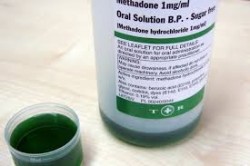If you have ever tried to stop taking Oxycodone on your own, you know how painful the withdrawals can be. Because Oxycodone is an opiate and withdrawal symptoms can be severe, it is recommended that you seek help from a drug treatment center that can provide medically assisted detox from the drug. There are many resources available to you when seeking help for the distressing symptoms that occur when withdrawing from Oxycodone or other opiate drugs.
How to Find Relief for Oxycodone Withdrawal
1. It is always important to talk to your doctor about any medical problems that you might have. An addiction to any kind of medication is a medical condition that should be discussed with your family doctor. Your doctor can put you in contact with drug treatment centers that will offer assistance through the entire process of the detoxification. Often through medically assisted detox the symptoms of withdrawal can be completely controlled.
2. Surround yourself with people that love you and support you during this difficult time. Often a strong family network can provide an environment where you can rest and heal in a safe place away from stressors that might trigger you to give up on fighting your drug addiction because withdrawal symptoms are so intense. It is important that someone withdrawing from opiates to feel connected and loved so they remain strong in their recovery.
3. There are medications that can be given to control withdrawal symptoms of opiates. These medications include Suboxone and Methadone, which make recovery from the drug achievable by reducing the severe abdominal cramping, nausea, terrible headaches and dizziness which can be so unpleasant that an addict will use again because they know that just a little bit of the drug would make them feel better. By taking the fear out of oxycodone withdrawal, it allows the person to focus on other aspects of their recovery that are vital to recovery like counseling.

Methadone and other maintenance medications can help you with oxycodone withdrawal.
4. Whether you choose inpatient or outpatient drug treatment, an important component of opiate recovery is counseling. A combination of medication to control withdrawal symptoms and counseling whether individual or group is highly recommended. Medical detoxification alone is not enough to support complete recovery. Many counselors are recovery addicts themselves, fully admitting that they will always be addicts. It helps to see that there are others who have not only made it to the other side of recovery, but are strong enough to help others. Many recovering addicts become counselors because it helps them to stay on the right path as well. There is no cure for drug addiction, however it can be managed with the proper balance of care, a commitment can be made to never use drugs again.
5. Long term use of methadone might be recommended for some who continue to have withdrawal symptoms or do not do well when methadone treatment is stopped. While most are in methadone treatment for about a year, others will need to take it for the rest of their lives to avoid relapse of opiate use. Methadone and other drugs have been found to be a safe alternative and according to NIDA, “Treatment lasting significantly longer is recommended for maintaining positive outcomes”.

 Why Does Oxycodone Withdrawal Happen? -
Oxycodone is a powerful opiate that is often prescribed for the treatment of moderate to severe pain. Widely known as Percocet, Percodan or Oxycontin, this drug is available only by prescription; unfortunately, this doesn’t stop people from getting their hands on it and using it for recreational purposes. When abused or used regularly for a ...
Why Does Oxycodone Withdrawal Happen? -
Oxycodone is a powerful opiate that is often prescribed for the treatment of moderate to severe pain. Widely known as Percocet, Percodan or Oxycontin, this drug is available only by prescription; unfortunately, this doesn’t stop people from getting their hands on it and using it for recreational purposes. When abused or used regularly for a ...  Is Weaning off Oxycodone A Good Idea? -
Weaning off oxycodone in a professional treatment facility can help prevent relapse and other potential negative consequences.
Is Weaning off Oxycodone A Good Idea? -
Weaning off oxycodone in a professional treatment facility can help prevent relapse and other potential negative consequences.  The Progression of Oxycodone Withdrawal -
Oxycodone is a highly abused and addictive opioid drug also known on the street as “Hillbilly Heroin”, “Kicker”, “OC”, “Ox”, “Oxy”, “Perc” or “Roxy”. Oxycodone is a semi-synthetic drug derived from opium which comes from the poppy the poppy plant, Papaver somniferum. According to the United States Drug Enforcement Administration, Oxycodone products are in Schedule ...
The Progression of Oxycodone Withdrawal -
Oxycodone is a highly abused and addictive opioid drug also known on the street as “Hillbilly Heroin”, “Kicker”, “OC”, “Ox”, “Oxy”, “Perc” or “Roxy”. Oxycodone is a semi-synthetic drug derived from opium which comes from the poppy the poppy plant, Papaver somniferum. According to the United States Drug Enforcement Administration, Oxycodone products are in Schedule ...